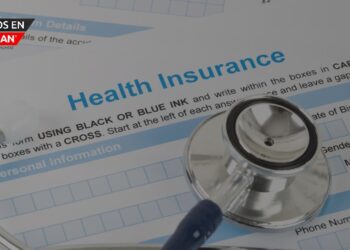The coalition between Ford Motor Company, Wayne State University, the Wayne State University Physician Group and ACCESS expanded its mobile COVID-19 testing effort, increasing the number of test vehicles in the fleet, expanding its area of operation as well as the types of tests available, and opening the program to local communities in need.
Since launching in mid-April, the initiative has tested more than 10,000 unique individuals throughout the state of Michigan, including first responders, health care workers, police officers and firefighters. Additionally, many individuals have also been tested multiple times to ensure they remain healthy and virus-free.
Ford and its in-house incubator Ford X have provided four Ford Transits – each fully equipped for mobile COVID-19 testing – as mobile screening units to conduct and support testing for symptomatic and asymptomatic patients. This includes a Transit that’s been upfitted to provide a better environment for health care workers, with built-in features such as drop-down tables, additional power sources, centrifuges for blood draws, refrigeration and more protective equipment.
Additionally, each vehicle is equipped with tents, sanitation, power and Wi-Fi to support mobile testing. Two Lincoln Personal Driver vehicles previously provided by Ford continue to be used to run medical equipment and supplies to the testing sites and lab facilities, and the company continues to consider other ways to expand the fleet.
“As stay-at-home restrictions are lifted and people ease back into their normal routines, there is still a huge need for accessible COVID-19 testing,” said Kristin Welch, Manager, Strategy & Operations, Ford X. “With a larger fleet and the capability to service a growing number of areas, we are proud to help expand this initiative beyond front-line health care workers and aid communities in need.”
“Although there is still a strong need for COVID-19 testing, expanding our services to include blood pressure and HIV testing, and broadening our community outreach, allows us to have even a bigger impact in improving community health,” said Phillip Levy, M.D., M.P.H., WSU’s assistant vice president for Translational Sciences and Clinical Research Innovation, and associate chair for Research in the Department of Emergency Medicine, as well as WSUPG’s chief innovation officer.
“As a community nonprofit, we see firsthand that major health disparities exist within the most vulnerable populations. During these trying times, this project has been a heartwarming reminder of the strong bonds of humanity and what can happen when we join hands to battle even the most formidable of challenges,” said ACCESS Chief Operating Officer Lina Hourani-Harajli.
While priority access continues to be given to first responders and others on the front lines of the pandemic, this effort is also providing testing services to local communities at large, serving those who are high risk, those who may have had exposure to the virus, and those who may be asymptomatic. Health care workers are providing tests at locations such as nursing homes, substance abuse centers, homeless/community shelters and more.
In addition to active virus and antibody testing related to COVID-19, the service has been expanded to include HIV testing and blood pressure screenings. These services have been added to support those who may have high risk for disease in general, underlying conditions, or who may not have access to more traditional health care services.
As part of this program, clinicians and professionals from Wayne State University, the Wayne State University Physician Group and ACCESS are providing free testing that does not require a prescription from a physician. Test results are typically returned within 24 hours.








